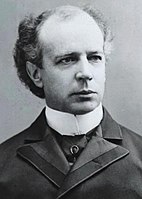
Sir Robert Laird Borden was a Canadian lawyer and politician who served as the eighth prime minister of Canada from 1911 to 1920. He is best known for his leadership of Canada during World War I.
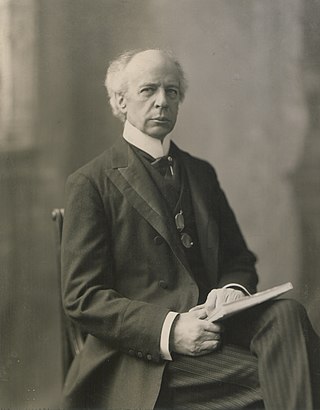
Sir Henri Charles Wilfrid Laurier, was a Canadian lawyer, statesman, and politician who served as the seventh prime minister of Canada from 1896 to 1911. The first French Canadian prime minister, his 15-year tenure remains the longest uninterrupted term of office among Canadian prime ministers and his nearly 45 years of service in the House of Commons is a record for the House. Laurier is best known for his compromises between English and French Canada.
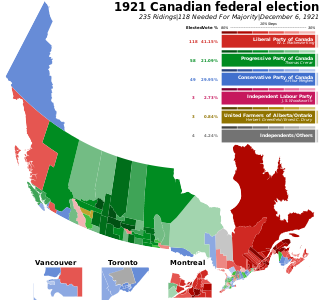
The 1921 Canadian federal election was held on December 6, 1921, to elect members of the House of Commons of Canada of the 14th Parliament of Canada. The Union government that had governed Canada through the First World War was defeated, and replaced by a Liberal government under the young leader William Lyon Mackenzie King. A new third party, the Progressive Party, won the second most seats in the election.

The 1896 Canadian federal election was held on June 23, 1896, to elect members of the House of Commons of Canada of the 8th Parliament of Canada. Though the Conservative Party, led by Prime Minister Charles Tupper, won a plurality of the popular vote, the Liberal Party, led by Wilfrid Laurier, won the majority of seats to form the next government. The election ended 18 years of Conservative rule.

The 1891 Canadian federal election was held on March 5, 1891, to elect members of the House of Commons of Canada of the 7th Parliament of Canada. It was won by the Conservative Party of Prime Minister Sir John A. Macdonald.

George Perry Graham, was a journalist, editor and politician in Ontario, Canada.
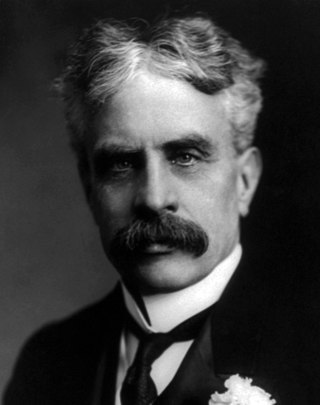
The 1911 Canadian federal election was held on September 21, 1911, to elect members of the House of Commons of Canada of the 12th Parliament of Canada.

Prior to the 1917 federal election in Canada, the Liberal Party of Canada split into two factions. To differentiate the groups, historians tend to use two retrospective names:

The 1917 Canadian federal election was held on December 17, 1917, to elect members of the House of Commons of Canada of the 13th Parliament of Canada. Described by historian Michael Bliss as the "most bitter election in Canadian history", it was fought mainly over the issue of conscription. The election resulted in Prime Minister Sir Robert Borden's Unionist government elected with a strong majority and the largest percentage of the popular vote for any party in Canadian history.

The 1908 Canadian federal election was held on Monday October 26, 1908 to elect members of the House of Commons of Canada of the 11th Parliament of Canada. Prime Minister Sir Wilfrid Laurier's Liberal Party of Canada was re-elected for a fourth consecutive term in government with a majority government. The Liberals lost four seats and a small share of the popular vote.

The 1900 Canadian federal election was held on November 7, 1900 to elect members of the House of Commons of Canada of the 9th Parliament of Canada. As a result of the election, the Liberal Party, led by Prime Minister Wilfrid Laurier, was re-elected to a second majority government, defeating the Conservative Party and Liberal-Conservatives led by Charles Tupper.

The 1905 Alberta general election was the first general election held in the Province of Alberta, Canada, shortly after the province entered Canadian Confederation on September 1, 1905. The election was held on November 9, 1905, to elect twenty-five members to the 1st Alberta Legislative Assembly.
The North-West Territories Liberal-Conservative Party also known formally as the Liberal-Conservative Association prior to 1903 and the Territorial Conservative Association after 1903, was a short lived political party in the Northwest Territories, Canada. from 1897 to 1905. It was a branch of the federal Conservative Party of Canada.

William Andrew Charlton, was a Canadian lumber merchant, businessman and politician.

William Francis Asbury Buchanan was a Canadian journalist, newspaper publisher and politician from Alberta.
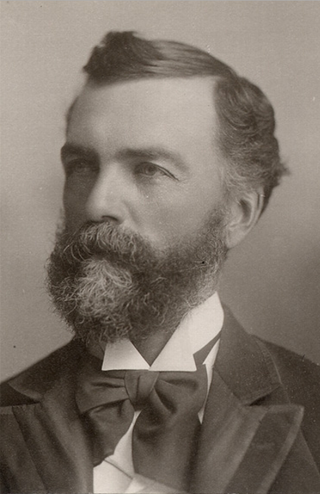
Joseph-Israël Tarte, was a Canadian politician and journalist.

Frank Broadstreet Carvell, was a Canadian lawyer, businessman, and politician.
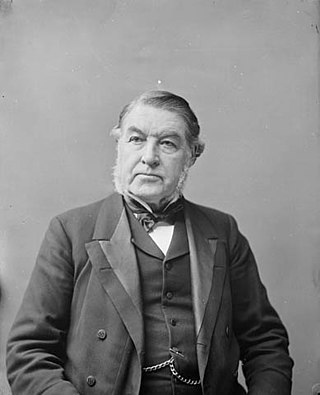
This article is the Electoral history of Sir Charles Tupper, the sixth Prime Minister of Canada. A Conservative, he became prime minister upon the resignation of Prime Minister Sir Mackenzie Bowell over the Manitoba Schools Question in 1896. Tupper was the shortest-serving prime minister, with a term of only 69 days. He led his party in two general elections and lost both, to Sir Wilfrid Laurier

This article is the Electoral history of Sir Wilfrid Laurier, the seventh Prime Minister of Canada.

This article is the Electoral history of Robert Borden, the eighth Prime Minister of Canada (1911-1920).


